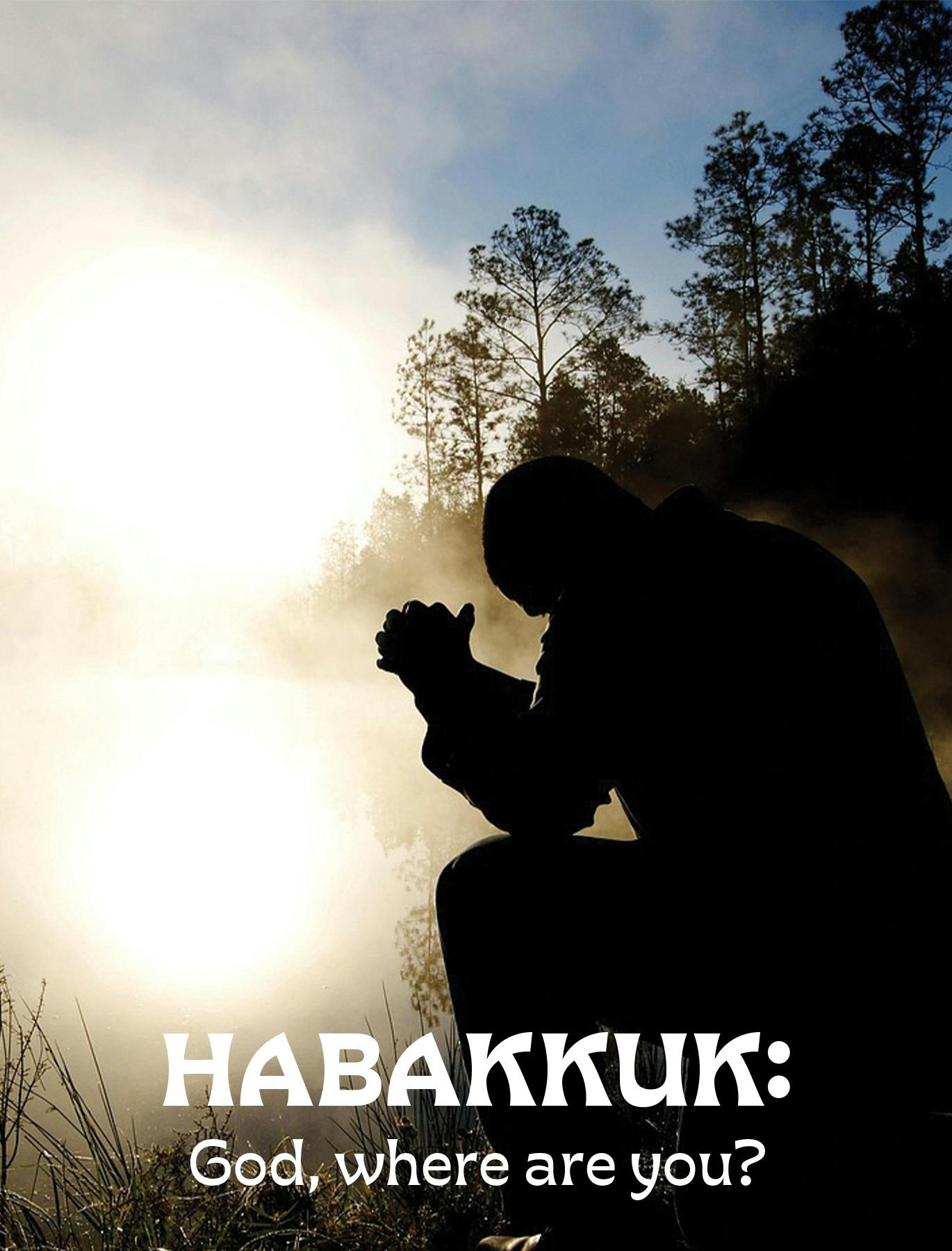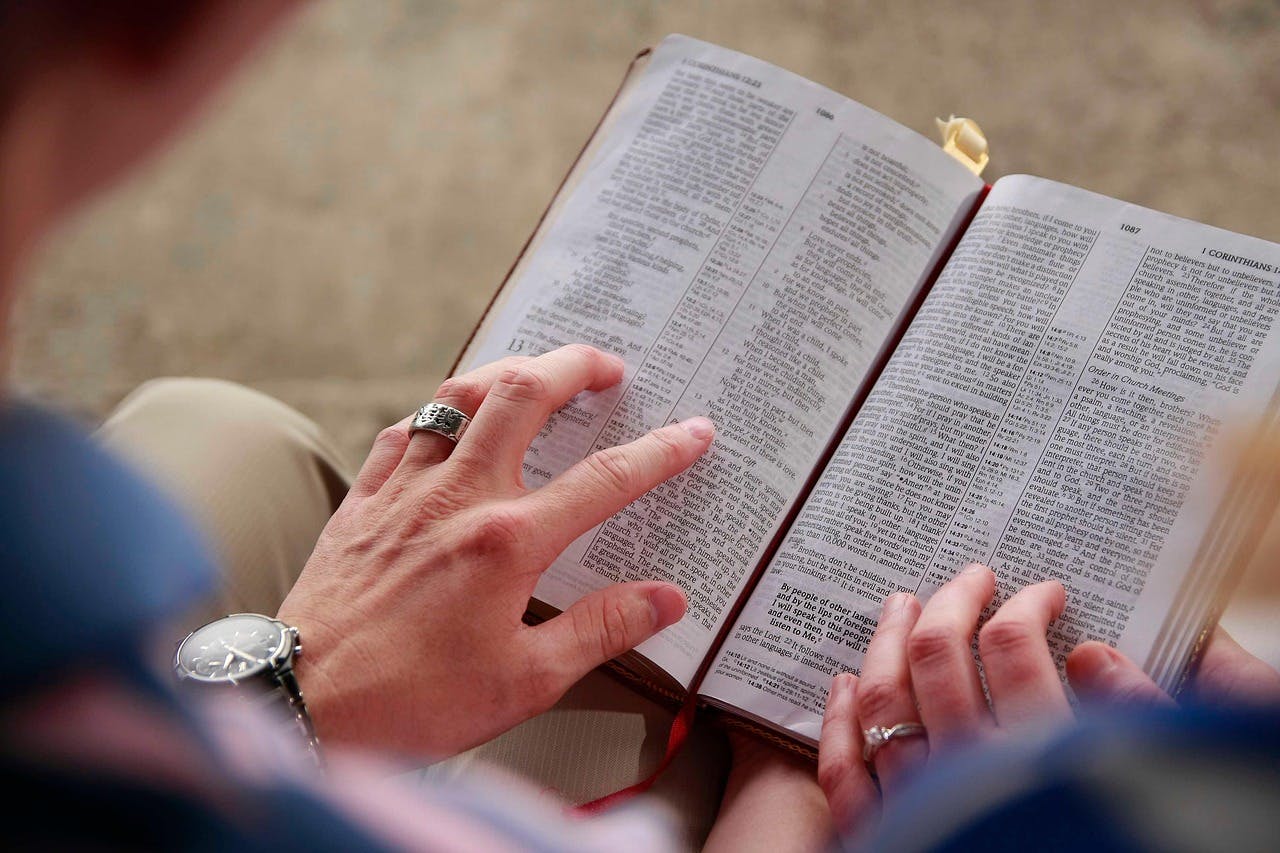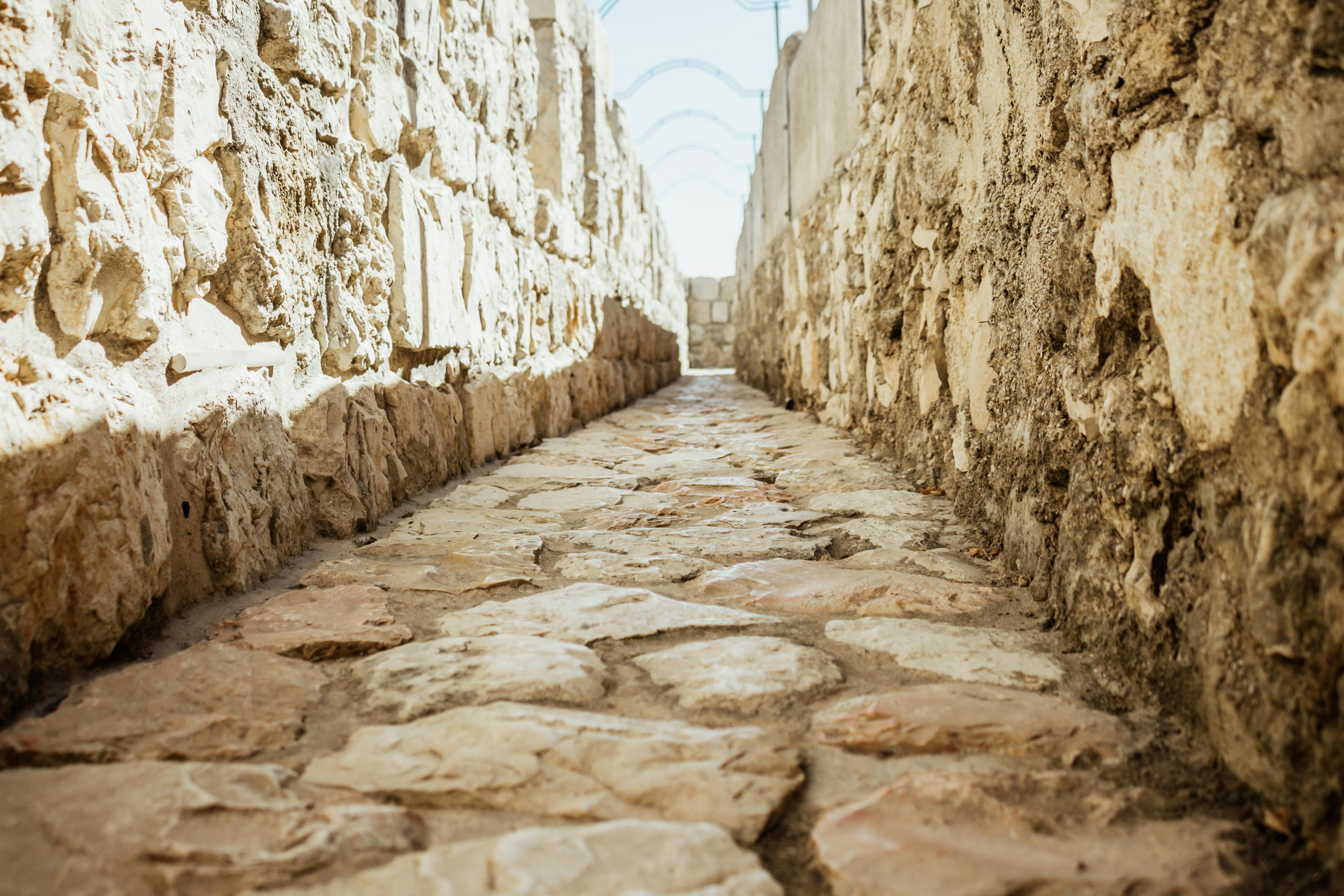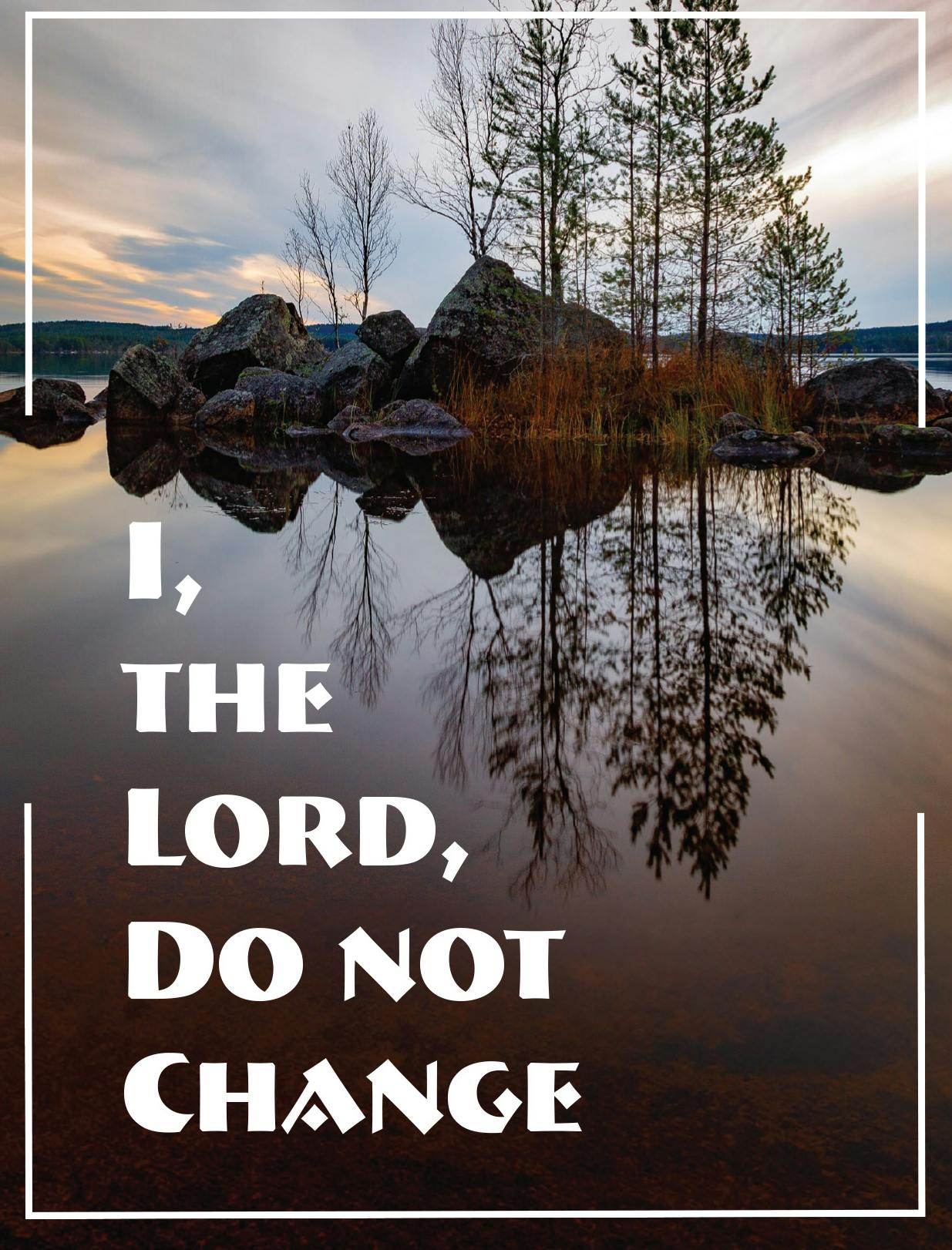Habakkuk: God, Where Are You?

Download PDF Version
The Bible contains a treasure trove of books and letters, with words as alive and life-giving as they were when they were originally inspired by the Holy Spirit. Some we know well and can find quickly; others are less well-known. Habakkuk certainly falls in the latter category. We find this short, prophetic book tucked away between the books of Nahum and Zephaniah. I have loved its hope-filled ending for many years, but recently, I have been caught up in the whole book. Even though it was written approximately 2,800 years ago, the message is so relevant for today. Come with me on a journey as we eavesdrop on Habakkuk’s conversation with God.
A Mystery Man
We know little about Habakkuk. Unlike other prophets, his genealogy does not appear in Scripture. His name is only mentioned twice: first in the introduction to his prophecy (Hab. 1:1) and again at the beginning of the last chapter (Hab. 3:1). Scholars even disagree as to the meaning of his name, though most have concluded it was derived from the Hebrew root letters חבק (ḥāḇaq), which means “to embrace or clasp.” It becomes very evident as we read through the book of Habakkuk that the prophet was, indeed, a man who embraced, clasped and clung to God alone.

When did he live and write this prophecy? According to the Pickering Bible Commentary for Today, “Any attempt at dating the prophecy must face one crucial question: Is Habakkuk’s description of the Chaldeans prophetic foresight, or is it a straightforward reporting of facts already well-known at the time?”
Although there are several theories, most scholars accept the Seder Olam (a rabbinic chronology of biblical events), which holds that Habakkuk lived during the reign of King Manasseh (697–643 BC). The Kingdom of Judah had undergone a series of reforms under King Hezekiah, which his son, Manasseh, immediately reversed when he ascended the throne. The result was widespread sin and wickedness, which leads us to Habakkuk’s first complaint.
God, You Aren’t Doing Anything!
Habakkuk, the man who loved God and clung to Him, was horrified by the condition of Jerusalem under the reign of Manasseh. “And he did evil in the sight of the Lord, according to the abominations of the nations whom the Lord had cast out before the children of Israel” (2 Kings 21:2).
Listen to Habakkuk’s anguish as he pours out his heart, “O Lord, how long shall I cry, and You will not hear? Even cry out to You, ‘Violence!’ and You will not save” (Hab. 1:2). He continues, “Why do you show me iniquity, and cause me to see trouble?” (v.3a)? We could paraphrase Habakkuk’s cry as follows, “God, don’t You care that your name is profaned?”
In answer to the accusation that He wasn’t doing anything about the situation, God tells Habakkuk to “Look among the nations and watch—and be utterly astounded!” (Hab. 1:5a). He then proceeds to describe the Chaldean army, the instrument of judgment He has chosen for the Kingdom of Judah. It is indeed terrifying to read of the practices of this army, which was known for their violence and heartless destruction of the lands they conquered.

God, That’s too Much!
The initial cry of, “God, You aren’t doing anything” abruptly changes to a horrified, “God, we can’t survive such an onslaught! That’s too much!” Habakkuk then utters his second complaint, which contains two parts. First, he asks how anyone will survive the coming devastation. Second, he questions God’s choice of the Chaldeans, a nation much more wicked than the Israelites. Habakkuk then determines, in a manner similar to that of Jonah at Ninevah, “I will…set myself on the rampart, and watch to see what He will say to me” (Hab. 2:1).
It is almost like Habakkuk is saying, “I cannot believe You are serious, Lord. You have just described in minute detail the horrible practices of the Chaldean soldiers, Your chosen instrument to judge Judah’s sin. I’m just going to sit here on the walls of Jerusalem and see what you will say. Will You correct me? Will You continue on the path of judgment that You have set out?”
Make the Vision Plain
The Lord’s reply comes quickly. He does not explain Himself but instead gives Habakkuk the task of sharing the vision of the impending judgment with others, a warning to them. “Then the Lord answered me and said: ‘Write the vision and make it plain on tablets, that he may run who reads it’” (Hab. 2:2).
After giving instructions as to how the vision was to be given to the people, no doubt in the hope that some would hear and repent, the Lord then began to answer the second set of questions Habakkuk had posed.
God’s answer to the first complaint is simply: “the just shall live by his faith” (Hab. 2:4b). The Hebrew word translated as “just” is tzadik (צַדִּיק), which means righteous or one who is lawful. Even in the days of Manasseh who led his people away from serving God to idol worship, there was a righteous remnant who loved God and followed His instructions found in the Torah (Gen.–Deut.).
Woe to the Wicked
The remainder of Chapter 2 (vv. 5–20) addresses Habakkuk’s second question: “God, how can You use a people more wicked than we are to discipline us?” The NKJV translation gives these verses the subtitle, “Woe to the Wicked.” In the middle of His discourse, God puts the situation in perspective and proclaims His sovereignty over the entire world. Verse 13 poses the question, “Behold, is it not of the Lord of hosts that the peoples labor to feed the fire, and nations weary themselves in vain?” (emphasis added). The Lord answers His own question with familiar words spoken in the future tense, “For the earth will be filled with the knowledge of the glory of the Lord, as the waters cover the sea” (Hab. 2:14). This statement should strengthen our faith in the belief that “history”—or the affairs of the nations—is really “His story.”
Chapter 2 culminates with God’s warning against the futility of trusting in idols made by man for salvation of any kind. He and He alone is the only true God, the One who set the heavens in place (Gen. 1:6–8), who puts kings on thrones and removes them (Dan. 2:21). Habakkuk 2:20 says it all, “But the Lord is in His holy temple. Let all the earth keep silence before Him.” The discussion has ended and Habakkuk’s questions have been answered.

And There Was Silence
In my preparation for writing this teaching letter, I listened to a message on Habakkuk given by David Pawson. When Pawson reached the end of Chapter 2, he told his audience that he was going to be silent and not speak for several moments. It was a very powerful demonstration of the importance of being quiet and listening to the Lord. I am certain that Habakkuk was silent for more than a few moments.
The tone of the book changes in Chapter 3, as we read, “A prayer of Habakkuk the prophet, on Shigionoth” (v.1). It would be easy to skip over the last word, as the footnote in most translations tells us the exact meaning of this term is not known. It only appears one other time in its singular form (shiggaion) in Psalm 7, an impassioned plea for deliverance from his enemies written by King David. According to GotQuestions, “Most commentators think the word shigionoth carried the idea of ‘strong emotion,’ ‘erratic wandering’ or ‘wild tumult.’”
It is impossible to have a direct encounter with the Most High God and be unaffected. Habakkuk expresses deep emotion as he cries, “O Lord, I have heard Your speech and was afraid; O Lord, revive Your work in the midst of the years! In the midst of the years make it known; in wrath remember mercy” (3:2, emphasis added).
The prophet has accepted the fact that judgment is coming in the form of the Chaldean army, but the fact that he prays for mercy means he also knows the nature and character of God. This is a cry that touches God’s heart because mercy is part of His nature. God described Himself to Moses in this way: “And the Lord passed before him and proclaimed, “The Lord, the Lord God, merciful and gracious, longsuffering, and abounding in goodness and truth, keeping mercy for thousands, forgiving iniquity and transgression and sin, by no means clearing the guilty, visiting the iniquity of the fathers upon the children and the children’s children to the third and the fourth generation” (Exod. 34:6–7 emphasis added). We deserve judgment for our disobedience and sin, but we can plead for its opposite—mercy.
Habakkuk’s prayer continues as he begins his description of the greatness of God by using the pronoun “You,” then shifting to the pronoun “He” (Hab. 3:3–15). Finally, the climax comes when the prophet moves to his own response: “When I heard, my body trembled; my lips quivered at the voice; rottenness entered my bones; and I trembled in myself, that I might rest in the day of trouble” (Hab. 3:16a).
As Habakkuk concludes this short book, we see he has accepted the fact that the city and Land he loves will be destroyed. There will be no harvest of olives, as the trees will have been chopped down. No sheep or goats will be left in the fold. Yet Habakkuk has reached the place where he knows God better than he did in the beginning. Now, rather than ask, “Where are You?” he chooses to look to God who is faithful, even when he doesn’t understand His ways.
The book ends with the beloved verses, full of passion and praise, “Yet I will rejoice in the Lord, I will joy in the God of my salvation. The Lord God is my strength; He will make my feet like deer’s feet, and He will make me walk on my high hills” (Hab. 3:18–19).
Lessons from Habakkuk
What are some of the lessons we can learn from the book of Habakkuk?
Our Questions: It’s normal and natural to have questions. Generally speaking, the “Why?” questions we pose to God can put us on thin ice. Are we implying that we could have done a better job managing the universe than He is doing or do we genuinely want God’s answer? He knows the motives of our hearts better than we do and I think the book of Habakkuk shows that it is alright to ask God questions. However, we may not like the answer.
Our Complaints: These can look like questions, but they have an accusatory tone about them. The most important thing if you have a complaint is to go to God directly. Do not murmur and complain to others; that is rebellion. Our thoughts and the condition of our heart are not hidden from God. Best not to let a complaint fester. Rather take it to Him.
Judgment: Sin has consequences, and although God is merciful, there are times we will experience those consequences. We do not get to choose the implement He uses to chastise us. In those times, all we can do is to cry out with Habakkuk, “in wrath, remember mercy.”
Encountering God: It is not a light matter to have a direct encounter with the Lord. In fact, I think it is reserved for a select few. And when these encounters happen, there are no further questions or complaints. For instance, when Isaiah saw the Lord, he cried, “Woe is me, for I am undone! Because I am a man of unclean lips, and I dwell in the midst of a people of unclean lips; for my eyes have seen the King” (Isa. 6:5). Job was rendered speechless after the Lord questioned him, saying only, “Behold, I am vile; what shall I answer You? I lay my hand over my mouth. Once I have spoken, but I will not answer; yes, twice, but I will proceed no further” (Job 40:4–5). Indeed, all questions or complaints vanish in the face of a divine encounter.
It Is One Book
Although we may never have a direct encounter with God as Habakkuk, Isaiah and Job did, we can meet Him in the pages of Scripture. It is important to explore the whole Bible, including the Tanakh (Gen.–Mal.), and not just the familiar books. I once heard a Bridges for Peace leader share: “When I get a new Bible, I tear out the blank page between the Old and New Testaments.” At the time, I was a little shocked, yet I soon realized the practical wisdom of this action. When I remove the barrier between the Tanakh and the New Testament (Brit Hadashah or New Covenant), I am vividly demonstrating the truth that the Bible is one book, full of hidden treasure and revelations that are as true today as they were when the Holy Spirit inspired their writers millennia ago.
Bibliography
Alexander, Pat, ed. The Lion Encyclopedia of the Bible. Herts, England: Lion Publishing, 1986.
“Book of Habakkuk.” BibleProject. https://bibleproject.com/guides/book-of-habakkuk/.
“Habakkuk.” Bible.org. https://bible.org/seriespage/habakkuk.
Lockyer, Herbert, Sr., ed. Nelson’s Illustrated Bible Dictionary. New York: Thomas Nelson Publishers, 1986.
Nute, A. G., ed. The Pickering Bible Commentary for Today. London: Pickering & Inglis, 1979.
Pawson, David. “Habakkuk Part 1 IHOPKC – May 2011.” YouTube video. https://www.youtube.com/watch?v=a_Q-yVdB8ms&t=8s.
“Habakkuk Part 2.” YouTube video. https://www.youtube.com/watch?v=yE44gOMJT0E.
Schapiro, Moshe, assisted by Moshe Mykoff. The Living Nach, Later Prophets: A New Translation Based on Traditional Jewish Sources. Jerusalem: Moznaim Publishing Corporation, 1995.
Stavsky, Rabbi Yitzchok, trans. and comm. Trei Asar (תרי עשר). Artscroll Tanach Series. Brooklyn, NY: Mesorah Publications Ltd, 2009.
“What Is the Meaning of Shigionoth in Habakkuk?” GotQuestions.org. https://www.gotquestions.org/shigionoth.html.
Related Resources

Discover Your Purpose and God’s Heart For You
In today's divided, turbulent world, it's essential for the Church to rediscover God's heart. Our free e-book, authored by a seasoned expert with three decades of experience in Israel, delves deep into the teachings of Jesus (Yeshua) to reveal God’s principles of love and purpose. Learn how embracing these truths can bring significance and impact to your life, even amidst chaos. Subscribe now to receive your free copy and embark on a journey of transformation.




